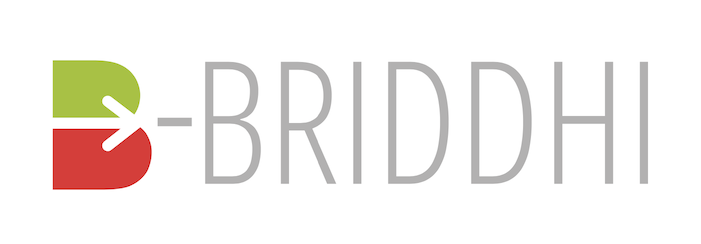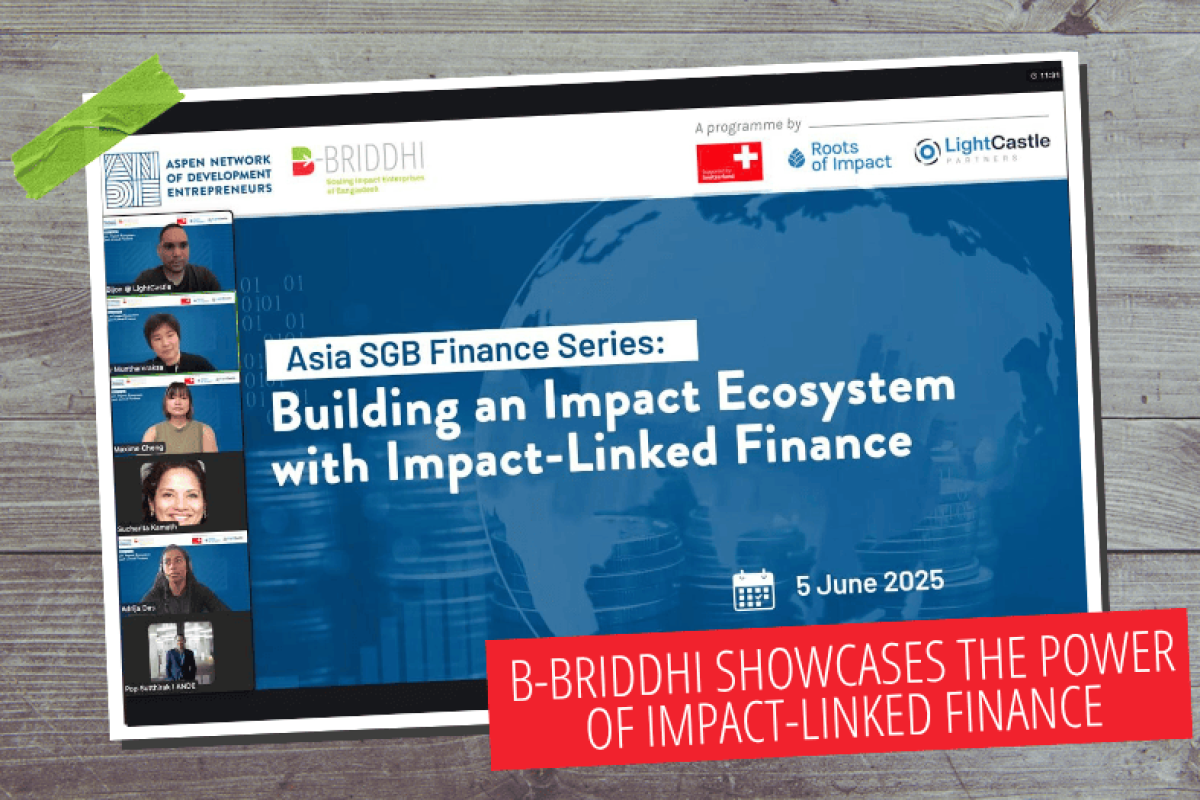Key takeaways from our participation in ANDE’s SGB Finance Series
What does it take to build a thriving impact ecosystem in Bangladesh? On June 5, 2025, the Asia SGB Finance Series hosted by ANDE East and Southeast Asia, explored this question through a deep dive into the experience of the Biniyog Briddhi (B-Briddhi) programme.
The session highlighted how multi-stakeholder collaboration, a smart use of catalytic capital, and well-designed innovative financing approaches can reshape the landscape for impact investing. Special attention was given to Shomvob, a mission-driven enterprise in Bangladesh, whose journey shows the transformative potential of aligning financial rewards with measurable impact.
As part of our commitment to learning and field-building, here are five key takeaways on how to build an impact ecosystem using Impact-Linked Finance (ILF), an innovative approach that rewards enterprises for achieving impact additionality.

1. Start with alignment
A thriving impact ecosystem begins with shared intention. At B-Briddhi, we align funders, enterprises, and support organizations around a core principle: better terms for better impact. This alignment creates the foundation for collaboration, where everyone benefits from greater social outcomes and long-term sustainability.

2. Incentivize outcomes, not just activities
Traditional finance rewards activity; Impact-Linked Finance rewards outcomes. By linking financial rewards to measurable, verified outcomes, we ensure that impact enterprises focus on what matters most: improving lives. This outcomes-based logic also helps attract catalytic capital that might otherwise be unavailable to early-stage ventures.

3. Build local partnerships
True ecosystem growth is local. Through the collaboration between Roots of Impact, LightCastle Partners, and support from the Embassy of Switzerland in Bangladesh, B-Briddhi embedded Impact-Linked Finance instruments in Bangladesh’s entrepreneurial landscape. Local intermediaries build trust, contextual understanding, and long-term capacity—key ingredients for successful ILF design and execution.

4. Pair finance with targeted technical assistance
Not every enterprise is ready for impact investment, but they can grow into it. By pairing Impact-Linked Finance with capacity-building, technical assistance, and tailored impact measurement and management support, we help unlock the potential of early-stage ventures. By investing in both financial incentives and capacity-building, we create a more inclusive and resilient ecosystem—one where more enterprises can access capital on better terms and grow their impact from the ground.

5. Keep learning and iterating
Impact ecosystems evolve—and so must financing strategies. At B-Briddhi, we apply the Design Principles for Impact-Linked Finance to ensure every instrument is context-aware, transparent, and adaptable. By continuously gathering insights from enterprises and partners, we refine how ILF is implemented to remain relevant, scalable, and impactful.

As B-Briddhi matured, it’s become more than a local initiative but a blueprint for other ecosystems. The programme demonstrates how high-integrity, well-structured ILF can be a powerful tool to activate local entrepreneurship, direct funding to what works, and build inclusive ecosystems from the ground up. This is how we turn better terms into better impact—and make it stick.
The session, “Building an Impact Ecosystem with Impact-Linked Finance” featured a powerful lineup of speakers: Bijon Islam (LightCastle Partners), Rifad Hossain (Shomvob), Adrija Das, and Mercy Zulu-Hume (Roots of Impact). Their reflections offered practical and strategic insights into unlocking inclusive growth. Maxime Cheng (Roots of Impact) added perspectives on how simplified tools and smarter capital design can scale outcomes, without overburdening early-stage enterprises.

About the Biniyog Briddhi Programme
B-Briddhi is a gender-inclusive programme supporting a thriving impact ecosystem in Bangladesh where impact enterprises can grow and scale. This programme is supported by the Embassy of Switzerland in Bangladesh and implemented by Roots of Impact and LightCastle Partners.


